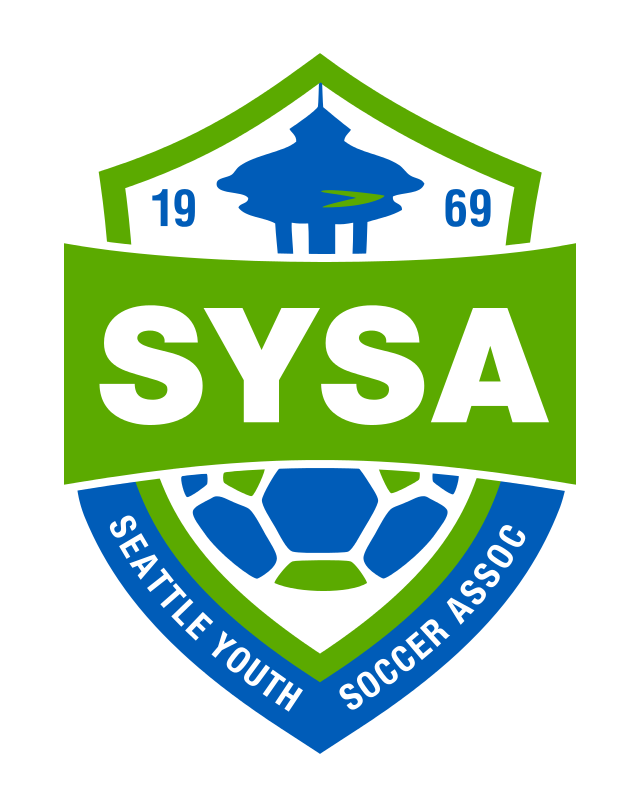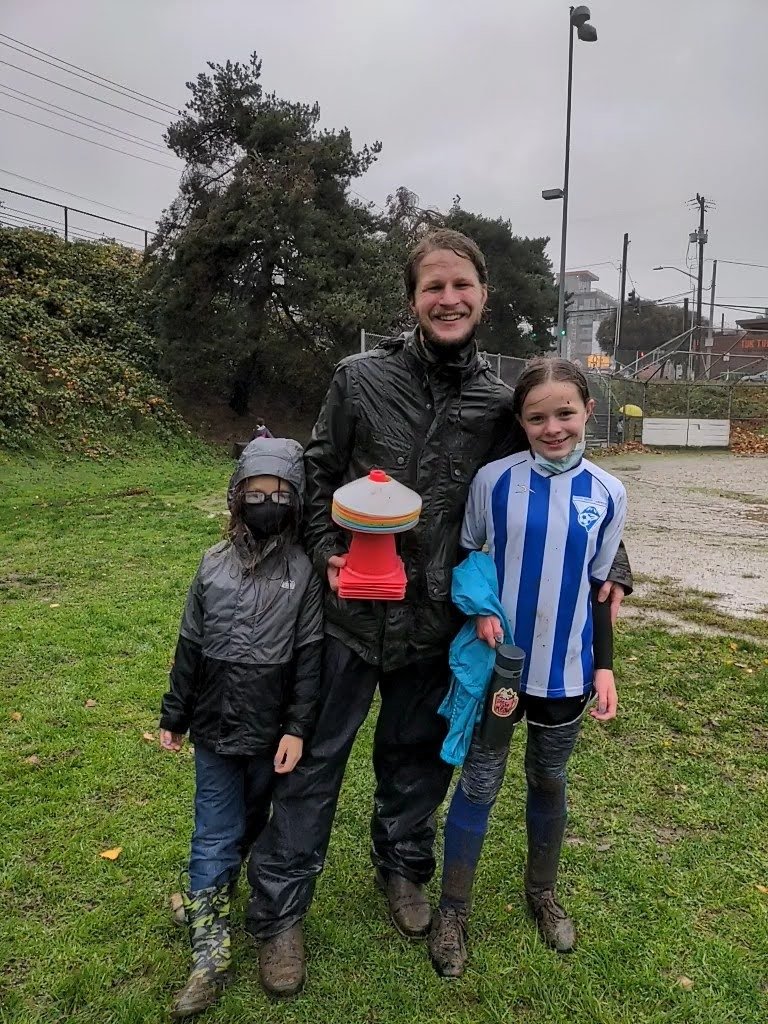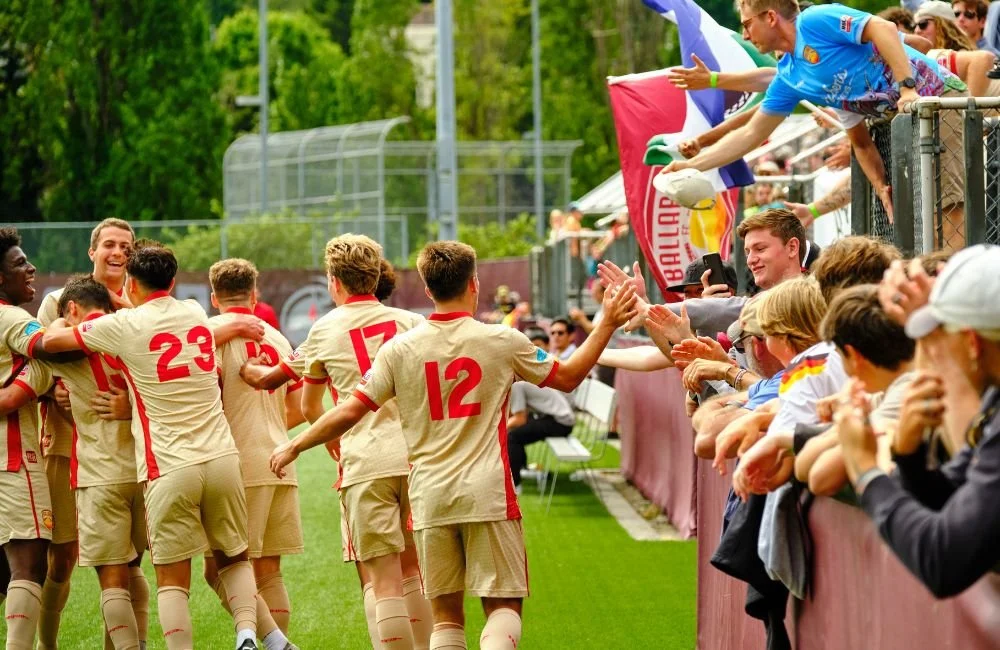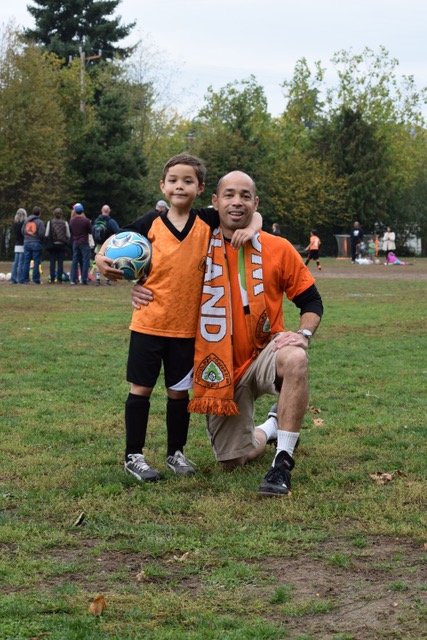Cold Weather Guidelines
In Fall & Winter, our NW cold and wet winters becomes a factor when organizing league or cup play. So please read over the info below to better prepare you for those cold months when we can get snow, ice, and very cold days.
Dressing for the cold
When temperatures drop and wind increases, the body loses heat more rapidly. It is important to dress appropriately when training or playing in cold weather. This also means to
not overdress.
Layering clothing in a specific way (see box) is recommended and very effective. The layers can be added or removed based on body temperature and changing environmental conditions, such as temperature and wind. Allow players to
Stay Dry
Wet and damp conditions add to the risk of injury or illness during cold weather. Players, coaches and referees should recognize these factors and use additional caution to watch for potential cold injuries.
If players do get wet during training or play, remove wet or saturated clothing and replace it with dry clothing. This becomes more important if the individual will remain out of play or anticipates standing around for a prolonged period of time. A hat, gloves and extra pair of socks can also keep extremities dry in case of snow or rain.
Stay Hydrated
Cold weather often reduces our ability to recognize that we are becoming dehydrated. If you are thirsty you have already become dehydrated. Try putting warm or hot water in a water bottle so that your water doesn’t freeze when training for extended amounts of time outside.
Take Action
If someone is suffering from a cold-related illness, get him or her into a warm location as soon as possible. Identify a nearby warming location before the start of training or play.
During games provide blankets or other items for players to stay warm while they are on the bench and allow additional substitutions or warming breaks.
Wind Chill
Pay attention to the wind chill temperature (WCT) Index. (see chart below) Even prolonged exposure in relatively mild temperatures can lead to frostbite. The National Weather Service wind chill chart can serve as a guide to safe play in cold weather.
Additional Tips
Keep an eye on field conditions (wet, icy, snow, etc.)
Keep an eye on the goalie—Usually they are first to suffer from the cold.
NO Propane heaters are allowed in turf fields.
Discuss with both the referee and opposing coach if the game needs to be cancelled. If the game is cancelled part way through a game the score stands at that point.
Safety and health of the players come first.
AWARENESS & PUTTING SAFETY 1ST
It is strongly recommended that coaches all have the latest weather apps loaded on their phones. These apps should include instant weather conditions and notifications. The coaches are responsible for keeping informed of the weather conditions at home, along their route to the game and at the game site. The coaches are also responsible for communications with the opposing coach and their own team in the event of inclement weather. Discussions between the coaches must provide for common sense to prevail.
STEP ONE – DETERMINE WIND CHILL TEMPERATURE
The effects of cold weather can impact health and safety during practices and games. The definition of “cold stress” varies across the United States, depending on how accustomed people are to cold weather. A player from Minnesota will have a much different threshold for cold than a player from Florida.
STEP TWO – FIND YOUR ALERT LEVEL
Use this chart to determine the alert level at your location based on the wind chill temperature.
Who make the call on cancelling the games?
SYSA League and CT (U10-19 Recreational play) = SYSA is the point of contact and will make the decision.
SYSA Club In-House games (U9 and below Recreational play) = The individual clubs with approval from SYSA.
All Seattle United teams = Seattle United will make the decision based on conversations with their own league admins (RCL, ECNL, NPSL)
It should also be made clear that in most cases the parks departments and/or school districts often close the fields regardless. So in this case we will notify all clubs and teams of the closures and subsequent cancellations. Note that this may not always be prior to the 72 hour window of time needed to notify your opponents.


































